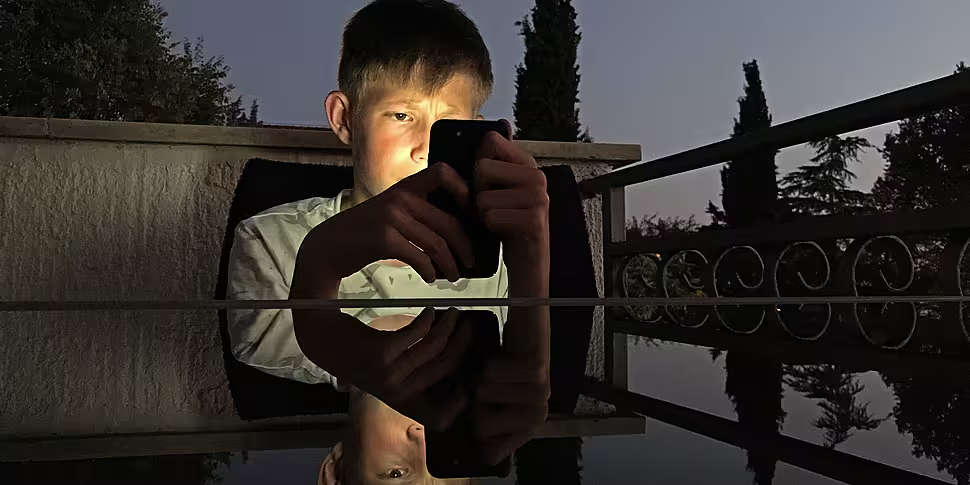Handing a young child a smartphone unsupervised is like letting them head off into town on their own, according to a Dublin school principal.
A new report from CyberSafeKids has found that more than a third of pre-teens game online with strangers.
Meanwhile, 84% of pre-teens are on social media despite the age limits set by the companies behind them.
The company 4,000 children aged between eight and twelve for their annual report and also found that one-quarter had seen something online that bothered them.
Of those, a third said they did not discuss it with their parents.
Meanwhile, nearly one-third said they had experienced some form of online bullying.
On Newstalk Breakfast this morning, Nicola Fay, Principal of St Brigid's National School in Castleknock said online issues are filtering into everyday school life.
“I suppose, from our point of view as teachers, we are seeing a lot of social media-related instances where children are often excluded from group chats maybe or there are hurtful messages sent,” she said.
“Maybe there are comments on pictures they have uploaded or maybe perhaps the children who are gaming get carried away online saying things they shouldn’t be saying
“That gets carried over then into the classroom and we very often have upset children or into the yard and then you have upset parents and people not knowing what to do.”
Social media
She said social media has enabled children to become content creators – and many are using social media sites despite the age restrictions.
“The children in that age bracket, eight to 12, they don’t have the maturity to deal with the consequences,” she said.
“In terms of children who are uploading seemingly innocent videos of themselves dancing or something like that, they can inadvertently reveal some information about themselves through the uniform they or wearing or other information they can identify themselves with.”
Supervision
She noted the “every child is different” but urged parents to think twice before handing a young child a smart device.
“I think giving a child a smart device - a phone, tablet or a gaming console - and giving them unsupervised access … effectively you’re saying, I’ll drop you into town for an hour and I’ll come back and pick you up then.
“We wouldn’t do that in the real world because we don’t know who they are meeting, what they are doing or who they are talking to – but when you give a child a device unsupervised, that is effectively what you are doing.”
You can listen back here:









